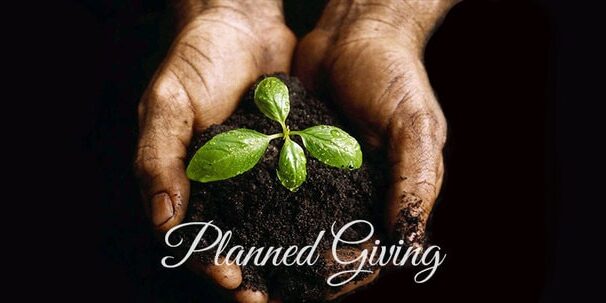Oil testing, drilling at Saint Mary-of-the-Woods
Special note: This piece, “A difficult decision to allow oil testing, drilling,” written by Sister Denise Wilkinson, SP general superior, ran in the Tribune Star on Oct. 17.

Sister Denise Wilkinson, general superior of the Sisters of Providence of Saint Mary-of-the-Woods, Indiana.
Our current culture seems to tell us life’s struggle is all about good vs. evil and black-and-white decisions. The reality is that the hardest choices are those that aren’t clear-cut.
They’re the ones you can argue from either side but eventually must make based on only a slight edge. That is the kind of choice the Sisters of Providence had to make about whether to test for and drill for oil on our motherhouse land.
One year ago, our five-member elected leadership team, all sisters, were studying financial projections for the Congregation. Charged with providing for the spiritual and financial well-being of our sisters and for the continuation of our ministries, we concluded that we could no longer save or cut our way to future sustainability; we needed new sources of revenue for our ministries to survive.
As if waiting in the wings, representatives from the Indiana oil co-op, CountryMark, approached us. They told us seismic testing on public roads revealed a 50/50 chance that an oil-producing coral reef lay under our property. CountryMark asked to conduct further seismic testing on our farm and woodlands. Feeling the weight of our responsibility, we five, reluctantly, gave permission.
I say “reluctantly” because we acknowledged that assisting in the depletion of fossil fuels is a conflict of values for us. Our White Violet Center for Eco-Justice works diligently to educate for and model sustainable use of all creation’s resources and to actively lobby for the same in state and federal legislatures. We, sisters, also have embraced the values and practices of sustainable living and adopted a Land Ethic policy in June 2012.
But we asked ourselves, is it responsible to turn our backs on a possible source of revenue that could help us meet our growing obligations?
Some context: We Sisters of Providence number 337. Our median age is 78. We provide assisted, skilled and memory care to 76 sisters in Providence Health Care here at St. Mary’s. In 2012-13, 81 sisters earned full or part-time stipends from “outside” sources, while 35 sisters worked in congregation service, for example, vocations, business operations and Providence Center programs. These uncompensated positions are vital to the life and mission of the Sisters of Providence.
In short, the bottom line is three bottom lines: providing for all our members; continuing ministries; being true to our stated values.
Seeking a wider circle of advisors, we asked our Master Plan Committee – Sister of Providence and Providence Health Care staff members – to closely examine CountryMark’s proposals through the lens of our Land Ethic document, which begins with this purpose statement: “As members of one sacred Earth community, we Sisters of Providence commit ourselves individually and communally to care for our resources and to make decisions regarding their current and future use as we seek to balance our individual and SP communal economic needs with the sustainability needs of Earth community.”
After study, the Master Plan Committee advised us to allow further testing. Still we hesitated. One of our sisters suggested we consult Robert Jean, Ph.D., associate professor of ecology at Saint Mary-of-the-Woods College. We did so, fully expecting we’d hear something along the lines of “Are you crazy?” But no.
After thorough review of materials we provided and of relevant literature and websites, Dr. Jean advised us to allow the testing. Perhaps most enlightening was the distinction he made between conservation and preservation of natural resources. He told us it is almost impossible to exist in our current milieu without the use of multiple petroleum products. He also asked what we’d do with the money if we realized revenues. “Care of members and assistance to ministries” was our response. He encouraged us to move forward for the sake of our mission and to model thoughtful decision-making when dearly held values conflict. He reminded us, we would be teaming with CountryMark, known for observing best practices in oil production.
In the end, we chose to allow the seismic testing and, if warranted, drilling for oil on our land.
Yet the decision still makes us squirm. Questions linger. Some of our sisters and staff are deeply unhappy at the choice we made. We respect their feelings and convictions; and we also respect the process of our decision. We have prayed, contemplated, sought information, analyzed, and asked Saint Mother Theodore for guidance.
Maybe we’ve made a mistake, but we’ve done the best we can, using the perpetuation of our ministries as a beacon. Why the God of Mystery hasn’t provided a less problematic revenue stream, we may never know. We would have so welcomed a nice, clear choice between good and evil.



I know this was a carefully weighed decision. To me, it speaks of a very common dilemma faced in my life and, I would imagine, in most families. Do scrimp to buy a fuel-efficient car or do I buy the car I can afford? Do I buy local & organic produce at the farmer’s market or do I buy twice the produce at the store? Do I take the time and floor space needed to recycle, or do I spend that time with my child and simplify our lives for the sake of our little family? These are never clear and easy decisions. On the one hand, I have to do the best to care for my daughter today. On the other, am I making a choice that won’t take care of her (or my grandchildren) in the future? I have to think through these things often and it always comes down on the side of taking care of myself and those closest to me in the best way possible right now. I don’t know what tomorrow will bring and what priorities might change, what decisions might shift in the other direction. When I can do more, I will. In the meantime, I do all that I can, as thoughtfully as I can, and that has to be enough.